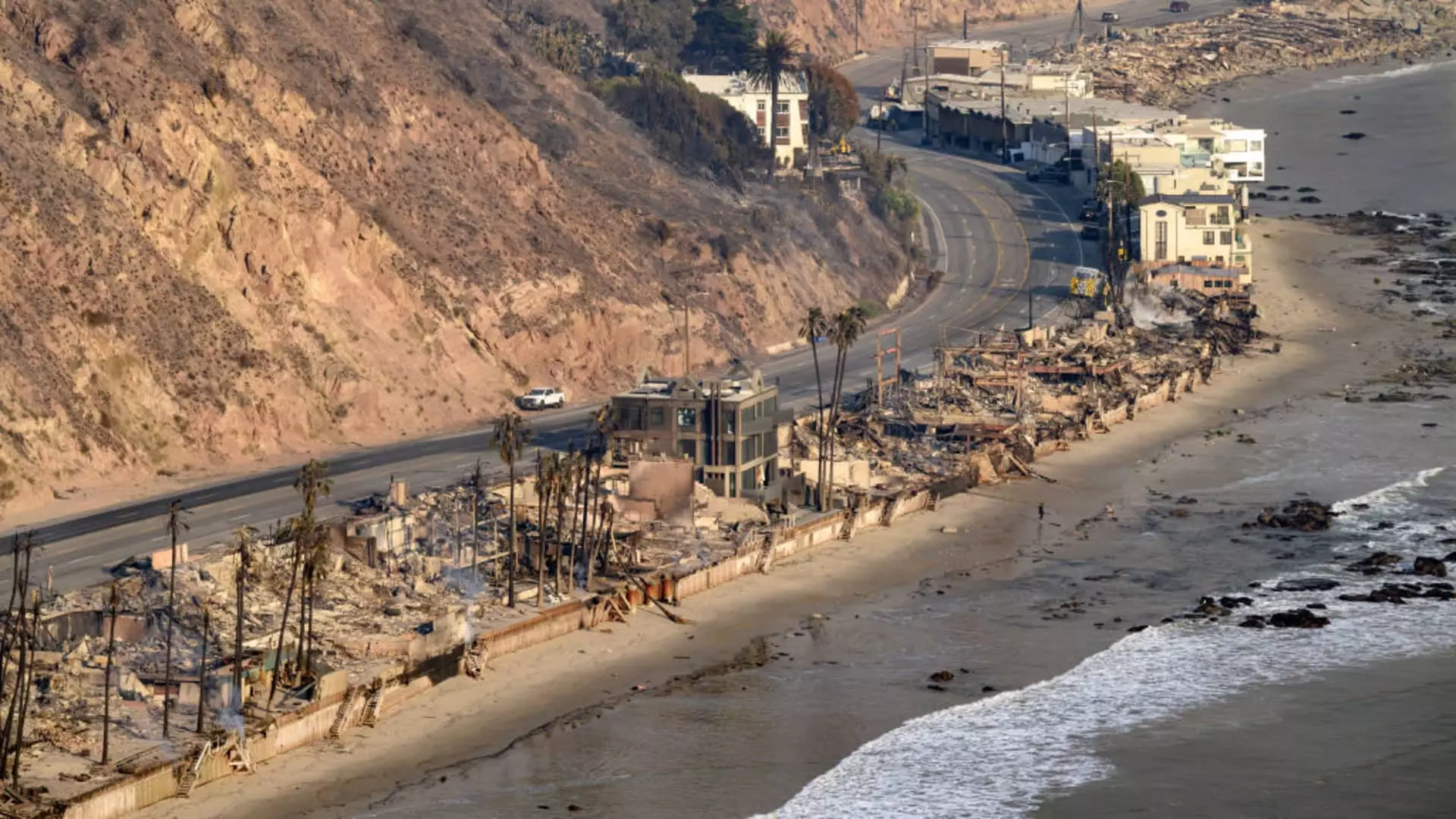The ongoing wildfires in California, particularly in Los Angeles, have drastically shifted the landscape for air travel in the region. With the destruction of thousands of homes and essential infrastructure, airlines are now facing the dual challenge of maintaining operations while ensuring the safety and convenience of their passengers. Significant disruptions like these create a unique situation for both customers and airlines, as they navigate the delicate balance between business and humanitarian considerations.
The impact of the wildfires is not limited to natural havoc; it’s extending into the very fabric of the community, affecting everything from power supply to water resources. The need for conservation measures and water usage restrictions has forced local authorities to issue advisories, urging residents to boil water before consumption. This environment of uncertainty and danger significantly weighs on travelers’ minds when planning their trips to or from the affected areas.
In response to these emergencies, major airlines such as American Airlines, United Airlines, Southwest Airlines, and JetBlue Airways have taken steps to make travel more flexible for those who have already booked flights to Los Angeles. The situation remains fluid, with many passengers re-evaluating their travel plans amid the havoc wrought by the wildfires. To ease concerns, these carriers have waived fees associated with flight changes, allowing travelers the latitude to rebook without financial penalty until as late as January.
American Airlines announced a generous rebooking policy, extending the offer to flights involving Hollywood Burbank Airport, Los Angeles International Airport, Ontario International Airport, and John Wayne Airport. In turn, Southwest Airlines also provided similar assurances, highlighting that customers can switch their travel within 14 days of their original dates or even reroute to other California destinations like Palm Springs and San Diego. Such policies not only reflect a proactive approach to customer service during a crisis but also underline the airlines’ commitment to moral responsibility in times of distress.
Economic Implications of Travel Disruptions
The economic ramifications of this natural disaster stretch beyond just the immediate impact on flights. Delta Air Lines’ executives have reported a noticeable decrease in flight sales to Los Angeles, a critical hub for both leisure and business travel. Although the drop in sales does not translate directly to increased cancellations, it constitutes a significant shift in consumer behavior during such crises. Glen Hauenstein, Delta’s president, specifically mentioned that while the impacts may not drastically alter quarterly earnings, they are certainly noteworthy when assessing demand patterns.
Hauenstein’s insight into the potential for an uptick in travel demand following natural disasters suggests that the airline industry may experience a rebound as the region begins its recovery phase. Historically, rebuilding efforts post-catastrophe often lead to increased travel, as businesses move to restore infrastructure and families seek to re-establish stability. It’s a cycle familiar to the industry, which has weathered many storms—be they hurricanes, floods, or wildfires—over the years.
When disasters such as wildfires strike, they illuminate the interconnectedness of local economies and the travel industry. For travelers, the decision to visit impacted areas becomes a delicate balancing act between personal safety and the desire to support local recovery efforts. Travelers may feel compelled to visit display their solidarity, but the initial hesitance based on safety concerns can delay these plans.
The news from Los Angeles serves as a reminder of the unpredictability inherent in travel. Airlines, too, find themselves adapting policies and proactively engaging with passengers who may reconsider their travel plans. No doubt, their strategic responses during this crisis will be scrutinized and could indeed shape customer loyalty in the future.
California’s wildfires present myriad challenges not just for the affected neighborhoods but also for the travel industry. As airlines navigate through this turbulent chapter, their responses will ultimately reflect their resilience and commitment to both operational efficiency and empathizing with travelers facing the stress of uncertainty.

